Uncategorized
-
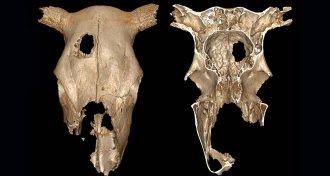 Anthropology
AnthropologyA hole in an ancient cow’s skull could have been surgery practice
Before performing skull operations on people, ancient surgeons may have rehearsed on cows.
By Bruce Bower -
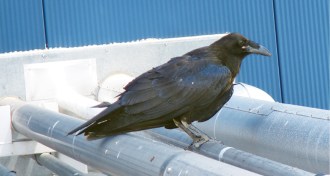 Physics
PhysicsHow ravens caused a LIGO data glitch
Ravens pecking at frosty pipes caused a glitch in gravitational wave data.
-
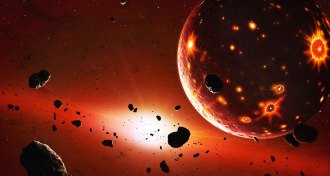 Planetary Science
Planetary ScienceThis meteorite’s diamonds hint that it was born in a lost planet
Bits of metal nestled inside diamonds suggest the space rock could have formed in a Mars-sized protoplanet in the early solar system.
-
 Tech
TechWhy touch can be such a creepy sensation in VR
Touch sensation in VR can go from immersive to unnerving as the feeling gets more realistic, if you can’t see the source.
-
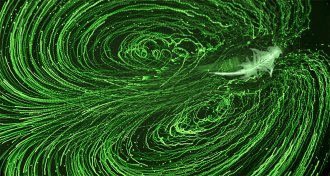 Oceans
OceansMasses of shrimp and krill may play a huge role in mixing oceans
Hoards of migrating shrimp and krill can cause large-scale turbulence in the ocean, a new study suggests.
-
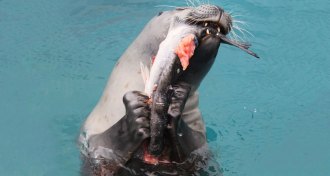 Animals
AnimalsThese seals haven’t lost their land ancestors’ hunting ways
Clawed pawlike forelimbs help true seals hunt like their land-dwelling ancestors.
-
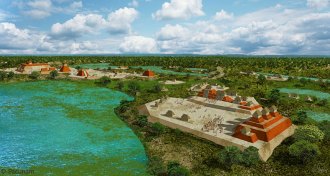 Archaeology
ArchaeologyThis ancient Maya city may have helped the Snake King dynasty spread
A rural hub in an ancient Maya state gets its due with some laser help.
By Bruce Bower -
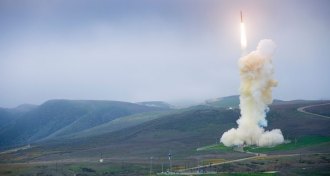 Science & Society
Science & SocietyHere’s why putting a missile defense system in space could be a bad idea
Expanding missile defense capabilities could put the world on a slippery slope to space warfare.
-
 Materials Science
Materials ScienceA new plastic film glows to flag food contaminated with dangerous microbes
Plastic patches that glow when they touch some types of bacteria could be built into food packaging to reduce the spread of foodborne illness.
-
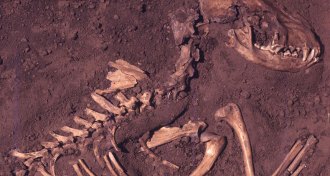 Archaeology
ArchaeologyDogs lived and died with humans 10,000 years ago in the Americas
Dogs unearthed at sites in Illinois were older than originally thought.
By Bruce Bower -
 Space
SpaceLasers squeezed iron to mimic the conditions of exoplanet cores
In the first experiment to measure what exoplanets might be like on the inside, scientists hit iron with 176 lasers at once.
-
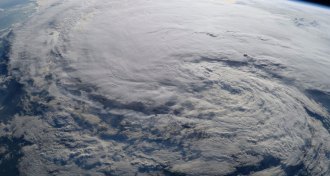 Math
Math‘Weird Math’ aims to connect numbers and equations to the real world
The book Weird Math attempts to make chaos theory, higher dimensions and other concepts more relatable.
By Diana Steele